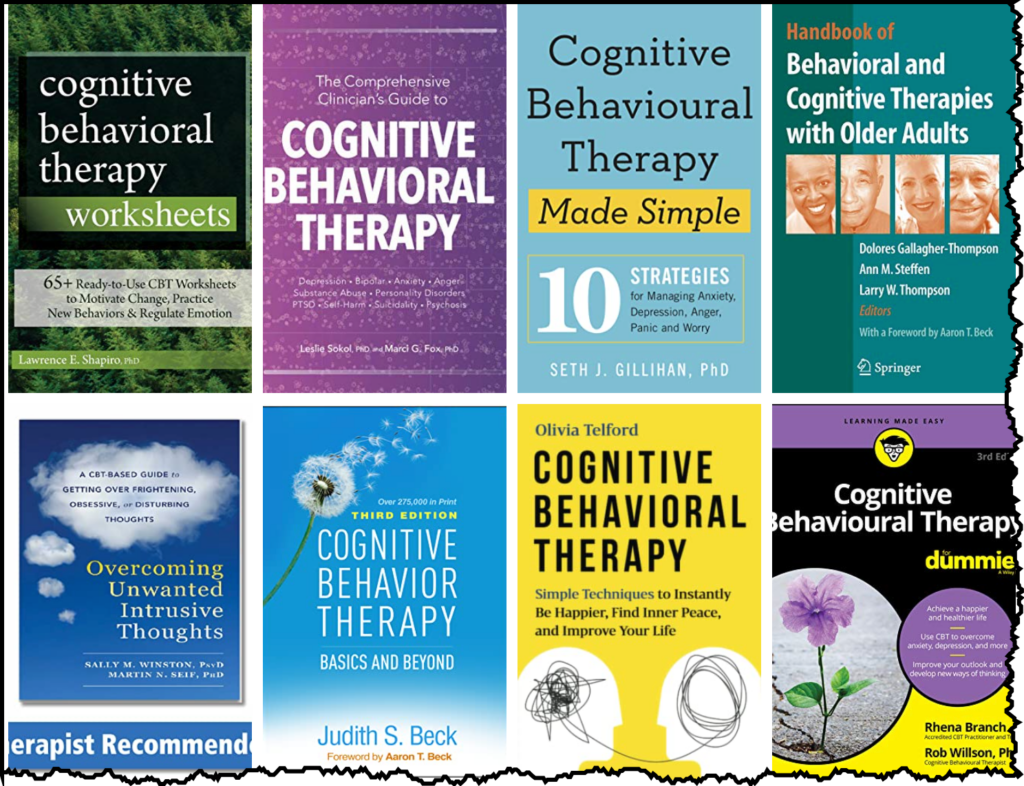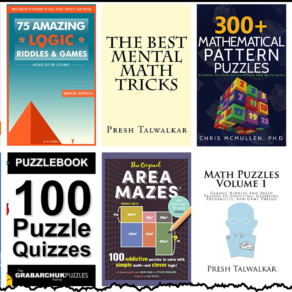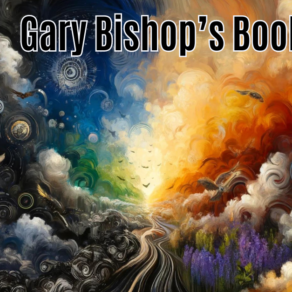Cognitive behavioral therapy books is the topic of our blog post today!
I’ve meticulously combed through countless titles, academic papers, and practitioner reviews to distill a collection of books that truly stand out in the field of CBT. These are not just random picks; they are well-researched choices reflecting the essence of cognitive-behavioral therapy.
The titles I’ve selected for you are not only insightful and authoritative but also tailored to various levels of expertise, from beginners to advanced practitioners. Whether you’re an educator aiming to equip your students, a therapist seeking to enhance your practice, or simply an enthusiast looking to understand more about CBT, these CBT books will provide tremendous value.
In the following summaries, you’ll find a comprehensive and thoughtful look at each of these cognitive behavioral therapy books, shedding light on their unique contributions and practical applications. I believe they will offer you a meaningful pathway to explore, understand, and utilize cognitive-behavioral therapy in various contexts.
Cognitive Behavioral Therapy Books
Here some key cognitive behavioral therapy books to consider:
1. Cognitive Behavior Therapy: Basics and Beyond, by Judith S. Beck
This comprehensive textbook provides an in-depth look into the principles and practices of cognitive behavior therapy (CBT). With more than half of the content revised, Judith S. Beck uses her expertise to demonstrate effective techniques to engage patients, plan treatments, and handle common challenges.
Featuring detailed case studies on severe depression and other conditions, this edition also offers access to downloadable worksheets and videos, making it an essential resource for understanding and implementing CBT.
2. Cognitive Behavioral Therapy: Simple Techniques to Instantly Be Happier, Find Inner Peace, and Improve Your Life, by Olivia Telford
Olivia Telford’s guide to CBT is tailored for individuals ready to take control of their mental well-being. Emphasizing the interconnectedness of thoughts, feelings, and actions, this book offers easy-to-follow exercises that empower readers to reshape their thinking patterns.
Covering a wide range of topics from self-perception to relationship-building, Telford’s approach presents a drug-free and practical way to happiness and self-improvement. It’s an empowering handbook for anyone wanting to break free from negative thinking and embrace a fulfilling life.
3. Cognitive Behavioural Therapy For Dummies, by Rob Willson and Rhena Branch
Offering an accessible entry point to CBT, this book is designed for those new to the method or looking to incorporate its techniques into their daily lives. Authors Willson and Branch present CBT as a flexible, scientifically-backed approach to tackling negative thought patterns.
With practical advice on overcoming past issues, reducing stress, enhancing communication, and building optimism, this guide demystifies CBT and provides readers with tools to enrich their mental outlook. It’s a hands-on guide that supports readers in understanding and applying CBT in various aspects of life.
4. The Philosophy of Cognitive-Behavioural Therapy (CBT), by Donald Robertson
In this insightful edition, Donald Robertson delves into the connections between ancient Greek philosophy, particularly Stoicism, and modern cognitive-behavioral therapy (CBT). He illustrates how Stoicism’s principles have influenced various psychotherapeutic approaches, from early rational psychotherapy to present-day third-wave CBT techniques like mindfulness.
By tracing the historical links and shared concepts between Stoicism and CBT, this book uncovers the philosophical roots of modern therapy. It’s a must-read for therapists and scholars interested in the intersections of philosophy and psychology, and offers practical techniques that can be applied in modern therapy or self-help.
5. Overcoming Unwanted Intrusive Thoughts, by Sally M. Winston PsyD, Martin N. Seif PhD
Addressing the often-stigmatized issue of unwanted and disturbing thoughts, this compassionate guide by anxiety experts Winston and Seif provides practical CBT skills to help readers break free from the cycle of intrusive rumination.
The book demystifies common myths surrounding such thoughts, reassuring readers that they are a normal part of human experience. By offering evidence-based techniques that don’t simply suppress these thoughts but help to manage them effectively, the authors empower readers to reclaim their lives without guilt or shame. A valuable resource for anyone struggling with this issue, this book serves as a beacon of understanding and healing.
6. Handbook of Behavioral and Cognitive Therapies with Older Adults, edited by Dolores Gallagher Thompson, Ann Steffen, Larry W. Thompson
This handbook is an essential tool for mental health professionals working with older adults. It aims to establish evidence-based practices in treating common mental health problems in late life. Each chapter focuses on specific issues, such as depression or anxiety, and provides an overview of empirical research, followed by practical guidelines on applying CBT with older clients.
The book emphasizes diversity and features case studies to illuminate the recommendations. By providing a comprehensive look at the effective application of CBT for different conditions within the older population, this handbook promotes better standards in mental health care for elders.
7. Cognitive Behavioural Therapy Made Simple, by Seth J. Gillihan PhD
Authored by licensed psychologist Seth Gillihan, this book offers a user-friendly approach to cognitive behavioural therapy (CBT). Aimed at those new to CBT, it simplifies complex concepts into practical strategies that can be applied in daily life.
The book covers 10 essential CBT principles, from challenging negative thought patterns to behavioral activation. It’s designed to provide supportive guidance and tools to set and achieve goals, and includes self-evaluation sections to track progress.
8. The Comprehensive Clinician’s Guide to Cognitive Behavioral Therapy, by Leslie Sokol and Marci Fox
This workbook by Drs. Sokol and Fox serves as an extensive guide for mental health professionals interested in implementing CBT. Filled with worksheets, coping cards, and activities, the book offers easy-to-understand tools to apply CBT principles to a wide range of issues, such as depression, anxiety, PTSD, and more.
The authors aim to help clinicians teach clients how to build confidence and eliminate self-doubt, equipping them to become their therapists.
9. Cognitive Behavioral Therapy Worksheets, by Lawrence Shapiro
Lawrence Shapiro’s book is a valuable collection of 65+ ready-to-use CBT worksheets designed for immediate application with clients. Each worksheet comes with step-by-step instructions and therapeutic insights, making them easily adaptable to various needs, symptoms, and goals. These tools not only provide clarity and beneficial feedback but also track client progress in a tangible way.
Concluding thoughts
These books are more than mere texts; they are tools, guides, and companions that can facilitate personal growth, professional development, and positive change. I sincerely hope you find these recommendations enlightening and valuable in your pursuit of knowledge and practice in the field of CBT.















